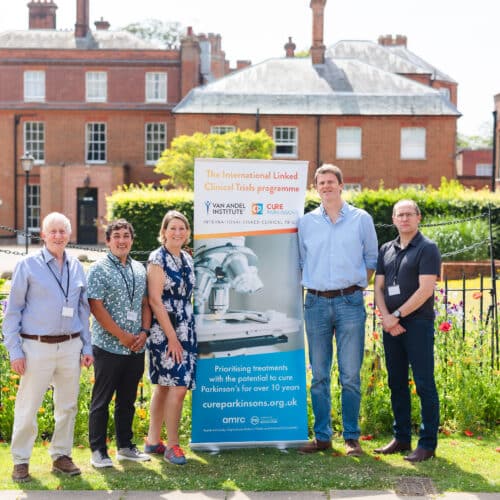How testing the gut could help in the early detection of Parkinson’s

Recent results from a Cure Parkinson’s funded study have provided more evidence for a possible role of the gut in Parkinson’s, as well as identifying new markers to aid in early detection of the condition.
There is growing evidence to suggest that the gut may play a role in the development or onset of Parkinson’s. For example, constipation, a common non-motor symptom of Parkinson’s, can begin many years before diagnosis.
New research, led by Assistant Professor Sandra Morais Cardoso at the University of Coimbra in Portugal, has centred on trying to better understand this potential relationship by focusing on the gut microbiome. The gut microbiome is a collection of microorganisms living in our intestines which help with the breakdown of food and extraction of nutrients. Research also suggests the microbiome and brain communicate and influence one another via a pathway called the gut-brain axis, which affects our overall health and wellbeing.
In this study, researchers looked at mice who had been exposed to samples of the gut microbiome from people with Parkinson’s. In these mice, researchers found levels of gut inflammation were higher. They also detected the presence of clumps of the protein alpha-synuclein – a hallmark and driver of Parkinson’s progression – in the gut too. Furthermore, the team saw evidence of inflammation in the brain (neuroinflammation) as well, indicating that this could have been initiated by the gut. Neuroinflammation is thought to be another important Parkinson’s driver.
Overall, these findings provide support for the hypothesis that Parkinson’s could originate in the gut, also known as “gut-first” Parkinson’s. An additional implication for this research may also be in how we can use this knowledge to improve early detection and diagnosis of Parkinson’s. The researchers propose that using biomarkers, or measurable indicators of what is occurring in the body, of inflammation and alpha-synuclein in the gut could allow clinicians to identify signs of Parkinson’s earlier. This could provide an opportunity for early intervention as well, begging the question of whether we could prevent Parkinson’s onset by treating issues like gut inflammation.
This work is part of an ongoing Cure Parkinson’s funded project led by Professor Cardoso and we look forward to hearing future developments.




